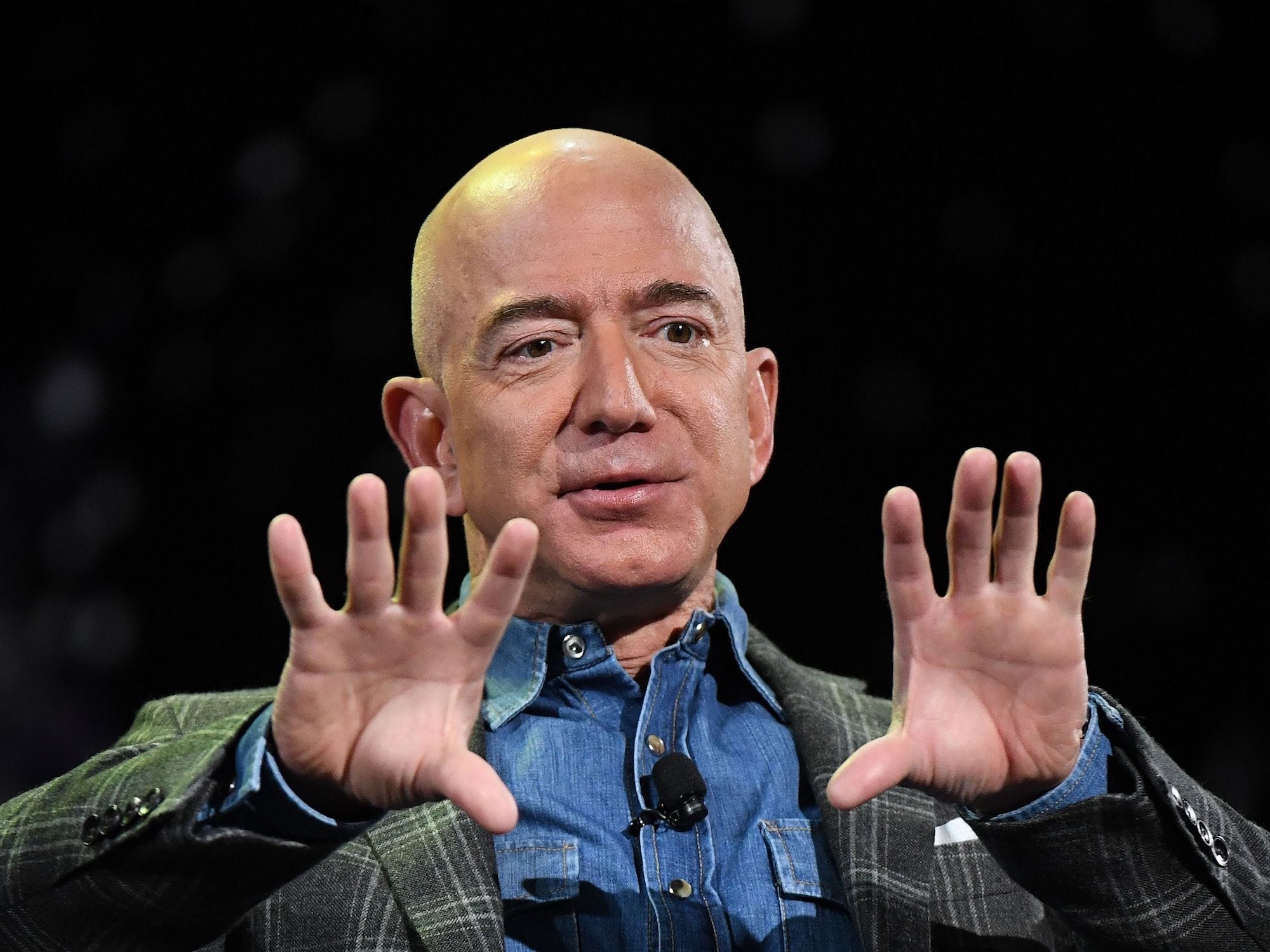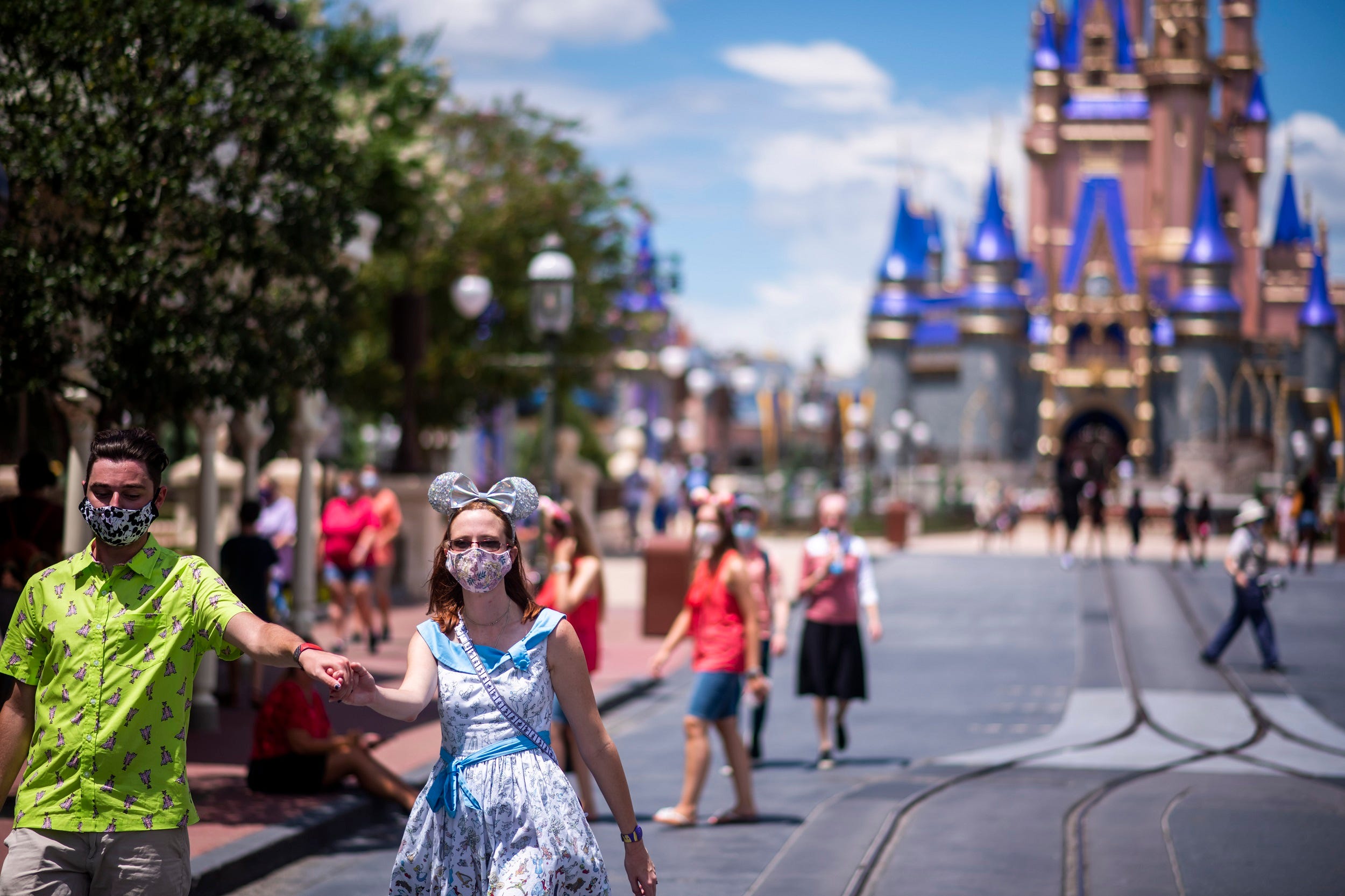
MARK RALSTON/AFP via Getty Images
- During the pandemic, CEOs have stepped down from the position at companies like Ford and IBM.
- Many of the CEOs had run the companies for decades.
- Some maintained leadership roles on the boards.
- Visit the Business section of Insider for more stories.
Amazon’s CEO Jeff Bezos is one of more than a dozen CEOs to announce plans to step down as chief executive from major companies like MGM, IBM, Ford, and Qualcomm over the last year.
This continues a trend seen in 2019 when 1,640 CEOs left their posts – the most CEO departures on record.
Just last month, Qualcomm CEO Steve Mollenkopf announced he was retiring after 26 years at the helm of the computer chip making giant.
Since the onset of the pandemic there has been a major shakeup in Fortune 500 companies.
A slew of CEOs stepped down in January and February of 2020 before the coronavirus outbreak officially hit the US, forcing companies to deal with lockdowns and remote work.
Jim Murren ended his time as CEO at MGM Resorts International on February 12, nearly two years before his contract was set to expire. The following summer, MGM Resorts reported $1 billion operating loss for its second quarter, as coronavirus restrictions wreaked havoc on resorts and casinos.
Disney has also seen a significant impact on revenue from COVID-19 restrictions. In its third quarter, the company lost $3.5 billion in operating income due to the closure of its parks, cruise lines, and hotels. Over the past year, Disney has undergone several instances of restructuring, shedding over 32,000 workers.

Charles Sykes/Invision/AP
On January 31, Disney announced the departure of Hulu's CEO, Randy Freer. His exit was part of a larger restructuring effort of the streaming service after it was purchased by Disney the previous year.
Less than a month later, former CEO of Disney, Bob Iger stepped down on February 25 after a run of 14 years.
Iger is one of many longtime CEOs to stay on at the company in a leadership role, even after appointing a new CEO. Much like Bezos plans to transition to the role of executive chairman, Iger stayed on as executive chairman while the new CEO Bob Chapek took over.
Iger remains a powerful voice at Disney. In April, the New York Time reported that Iger "smoothly reasserted control," during the coronavirus crisis.
"A crisis of this magnitude, and its impact on Disney, would necessarily result in my actively helping Bob [Chapek] and the company contend with it, particularly since I ran the company for 15 years," Iger wrote in April.
Microsoft co-founder Bill Gates maintained a similar level of influence at Microsoft even after he stepped down as CEO of Microsoft in 2008. This past year, he has taken further steps of distancing himself from the company.
In March, Gates stepped down from the company's board to focus his time on philanthropic efforts, in particular, global health. The billionaire has been instrumental in making the COVID-19 vaccine more accessible.
Over the past few years, people have increasingly looked to business leaders to take on more social responsibility
A 2020 study by Edelman, the largest public relation firm in the world, found Americans are placing their faith in CEOs during the uncertainty of 2020.
Much like Facebook and Twitter CEOs Mark Zuckerberg and Jack Dorsey have been called to task for their handling of the Capitol Siege, Victoria's Secret CEO Les Wexner saw the impact of the #MeToo movement on his company.

Scott Olson/Getty Images
After nearly 60 years at the company, on February 20, Les Wexner announced he was stepping down from his role of CEO at L Brands, a group that includes Victoria's Secret, as well as Bath & Body Works.
The transition represented a shift in culture as the world's largest lingerie retailer's shares had begun to drop, as public interest shifted away from oversexualized marketing in an era of #MeToo. Much like Disney, L Brands was forced to restructure, moving Bath & Body Works to a standalone company.
Many of the CEOs that transitioned out of their roles over the last year have had long runs at their companies
Like Wexner, Bezos was Amazon's CEO for many years, stepping down after running the company for 27 years.
Harley Davidson saw a similar transition as their CEO of 26 years, Matt Levatich resigned, while the company continued to see decreasing demand for motorcycles.
Most of the companies looked inwards for their new CEOs
At Mastercard, when former CEO Ajay Banga stepped down on February 25, he was replaced by the company's Chief Product Officer Michael Miebach.
Similarly, Ford replaced former CEO Jim Hackett with its Chief Operating Officer Jim Farley, when Hackett stepped down in August.
Companies also looked to replace talent from within their subsidiaries. Match Group CEO Mandy Ginsberg was replaced by the Chief Operating Officer of one of the parent company's groups, Tinder.
IBM replaced its CEO with Arvind Krishna, who ran the company's cloud computing business.
Other companies that saw CEO turnovers over the past year include LinkedIn, Salesforce, Groupon, Credit Suisee, Fastly, MedMen, Aurora Cannabis, and the tobacco company Altria Group.
Dit artikel is oorspronkelijk verschenen op z24.nl
